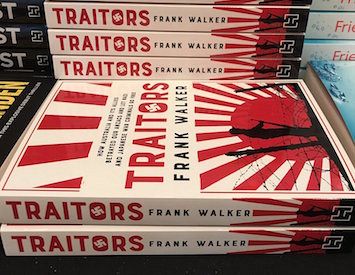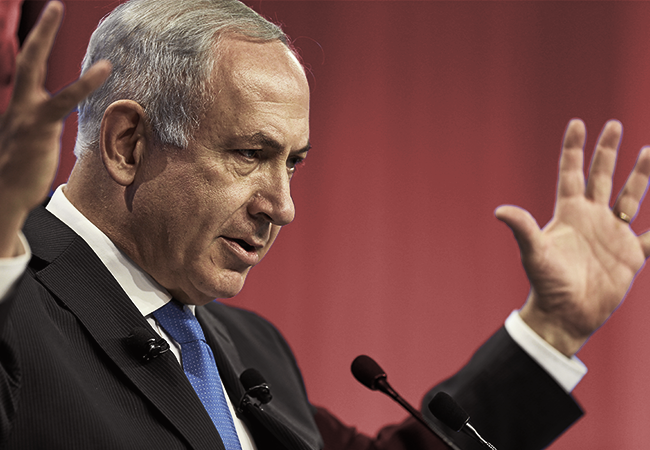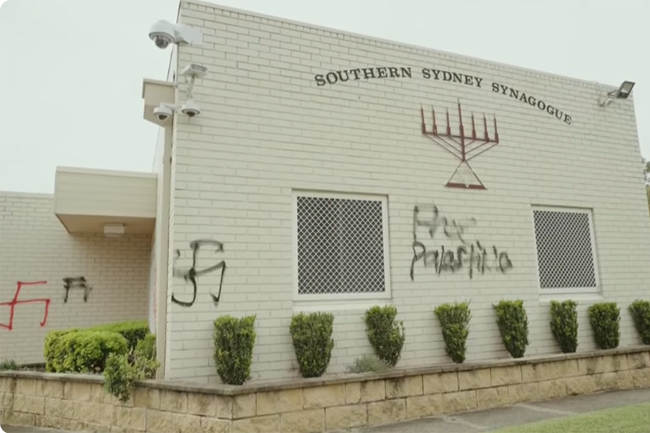Bilal Cleland discusses the depth of the betrayal of Australian forces by the post-war settlements as exposed in 'Traitors' by Frank Walker.
AS LATE AS 2014, toleration of right-wing extremism still clung to the Liberals, despite the exposure of the 1970s Liberal Party Migrant Advisory Council.
Speaking at the Croatian Club in Sydney on 13 April 2014, Member for Hughes Craig Kelly’s words were noted in the Australian Croatian weekly Boca KroPres [as quoted in IA]:
“On behalf of the Prime Minister, who is in Japan, I’m conveying his greetings and good wishes on the occasion of the celebration of the 10th of April to you and all Croats in Australia, and those in Croatia.”
This was the anniversary of the establishment of the Nazi puppet state of Croatia. It resulted in a "please explain" from the modern Croatian Government.
Traitors by Frank Walker, published this year, is a record of how our Anzacs were betrayed by our own government and by our wartime allies. Although the 'Moscow Declaration on Atrocities' signed by Churchill, Stalin and Roosevelt proclaimed that once the enemies were defeated they would ‘pursue them to the uttermost ends of the earth and will deliver them to their accusers in order that justice may be done’, this was not honoured.
Three examples of betrayal, two directly related to my relatives and one to the political character of modern Japan, stood out for me.
The case of an SS doctor’s use of five Australian prisoners of war for medical experiments on the transmission of hepatitis, after the defeat of Crete, is outrageous.
Lance Corporal George Savage from Melbourne reported the experiments to the Army after he escaped and returned to Australia. His report was filed away and ignored until retrieved by a researcher from the national archives in 2016. The SS doctor involved openly boasted of his research in a German medical journal. He was held for two years at War’s end but was soon released and became director of the Nuremberg Hospital, and professor of internal medicine at Erlangen University. One of my uncles was captured on Crete and could have well been used in these criminal experiments.
Experiments on captives were also part of the Japanese war effort. The vivisections of Unit 731 in Manchukuo, Japan were the most barbaric, but similar horrors were perpetrated throughout the lands occupied by the Japanese.
Ambon, where another uncle died just ten days before peace, was a place of human experimentation. Walker recounts that a prison camp doctor took nine groups of ten prisoners, injecting them with an unknown substance which he said was Vitamin B — 50 of them died soon after.
"The German people have recognised the crimes committed in their name but Japan has not."
Other places were equally horrid:
'On Guadalcanal, two prisoners were shot in the feet to stop them from escaping, and then a medical officer dissected them live, cutting out their livers.'
Unit 731, headed by General Shirō Ishii, carried out nightmarish experiments involving operations on prisoners without anaesthetic.
Ishii escaped prosecution as in May 1947, General MacArthur requested full immunity for Ishii and his associates:
'He even cited the living human dissections performed at Ping fang as a particular bonus for America.'
The question of bacteriological warfare was briefly raised at the Tokyo War Crimes Trials but was immediately suppressed.
The nature of post-war Japan stands in stark contrast to Germany. The German people have recognised the crimes committed in their name but Japan has not. It did not even admit to Unit 731 until 1982. The appointed "Showa Terror" of colonised Manchukuo, Nobusuke Kishi – later key member of the Tojo Cabinet, who signed a decree conscripting slave labour for factories in Manchukuo – became prime minister of "democratic" Japan in 1957. The current Prime Minister, Shinzo Abe, is his grandson.
Frank Walker has exposed the depth of the betrayal of our forces and of our allies by the post-war settlements, where the Cold War was used to justify recruiting Nazis and Japanese war criminals for the coming conflict with the USSR.
As the Introduction concludes:
'After reading this book you won’t help but wonder, what else did they hide?'
'Traitors: Why Australia and its Allies betrayed our Anzacs and let Nazi and Japanese war criminals go free', by Frank Walker, is published by Hachette Australia, 2017.
Bilal Cleland is a retired secondary teacher and has held positions as Secretary of the Islamic Council of Victoria, Assistant Editor and Member Executive Committee of Australian Muslim News, Chairman Muslim Welfare Board Victoria, Australian representative for Board of Governors, International Business Forum in Istanbul, President Independent Business and Industry Association of Australia and Secretary Australian Federation of Islamic Councils.
This article first appeared in Al Wasat and is republished with permission.
Monthly Donation
Single Donation
Don't forget. Subscribe to IA today.











